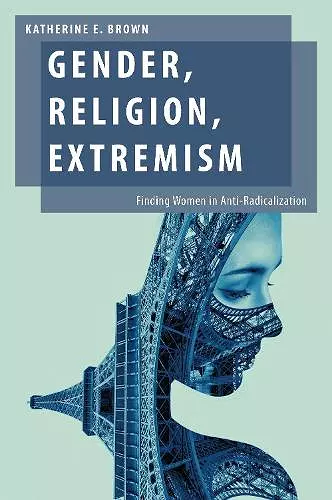Gender, Religion, Extremism
Finding Women in Anti-Radicalization
Format:Hardback
Publisher:Oxford University Press Inc
Published:25th Aug '20
Should be back in stock very soon

Radicalization, and the terrorism that is frequently linked to it, have been subject to much study and governmental intervention. Nevertheless, the processes that lead to radicalization remain thinly conceptualized although governments and their agencies worldwide have invested heavily in counter and de-radicalization programs. There are at least 34 anti-radicalization programs worldwide, most of which were initiated post-2001, with a focus on Muslims and Muslim communities. These policies and programs have led to interventions in the daily lives of thousands, often in ways that push the boundaries of human rights law and norms. However, the effectiveness of these programs is unclear. This book compares anti-radicalization programs that target Islamic extremism in the UK, Saudi Arabia, Indonesia, the Netherlands and Pakistan. It looks particularly at the ways in which the program tactics differ depending on the gender of the target, arguing that the gendered way in which anti-radicalization is pursued helps to reveal its limitations. These programs fail to take into account how masculinity and femininity inform the radicalization process. Moreover, the programs tend to link men's radicalization to excessive, but flawed, masculinity, and women's radicalization to passivity, which consequentially limits understandings of the various modes of belief, belonging, and behavior of those they are trying to engage. Solutions for male de-radicalization hinge on particular ideals of masculinity that few men can obtain, while the de-radicalization of women is seen as a rescue mission. Although the rhetoric of battling terrorism is often couched in a narrative of "women's rights" and "liberal values", the book demonstrates that the consequences of the programs often run counter to such ideals. The book's findings are applicable not just to de-radicalization programs, but also to broader counter-radicalization agendas that address resilience and community engagement. The book also highlights the way in which anti-radicalization measures hew to or differ from older programs addressing right-wing extremism, anti-cult measures, and sectarianism. Ultimately, Gender, Religion, Extremism proposes an alternative way of implementing anti-radicalization efforts that are rooted in a feminist peace--one that is transformative, inclusive, and sustainable.
Not only has Katherine Brown written the definitive review of different counter-radicalization policies and procedures that transverse the globe, she has also written a book deeply aware of how these policies are gendered and racialized, often to their own detriment. This is a must-read for terrorism studies scholars of any stripe. * Caron Gentry, University of St. Andrews *
This book offers a timely, well-written, and incisive analysis of gendering radicalization. An important contribution to the literature. * Fionnuala Ni Aolain, University of Minnesota Law School *
ISBN: 9780190075699
Dimensions: 160mm x 236mm x 28mm
Weight: 544g
296 pages